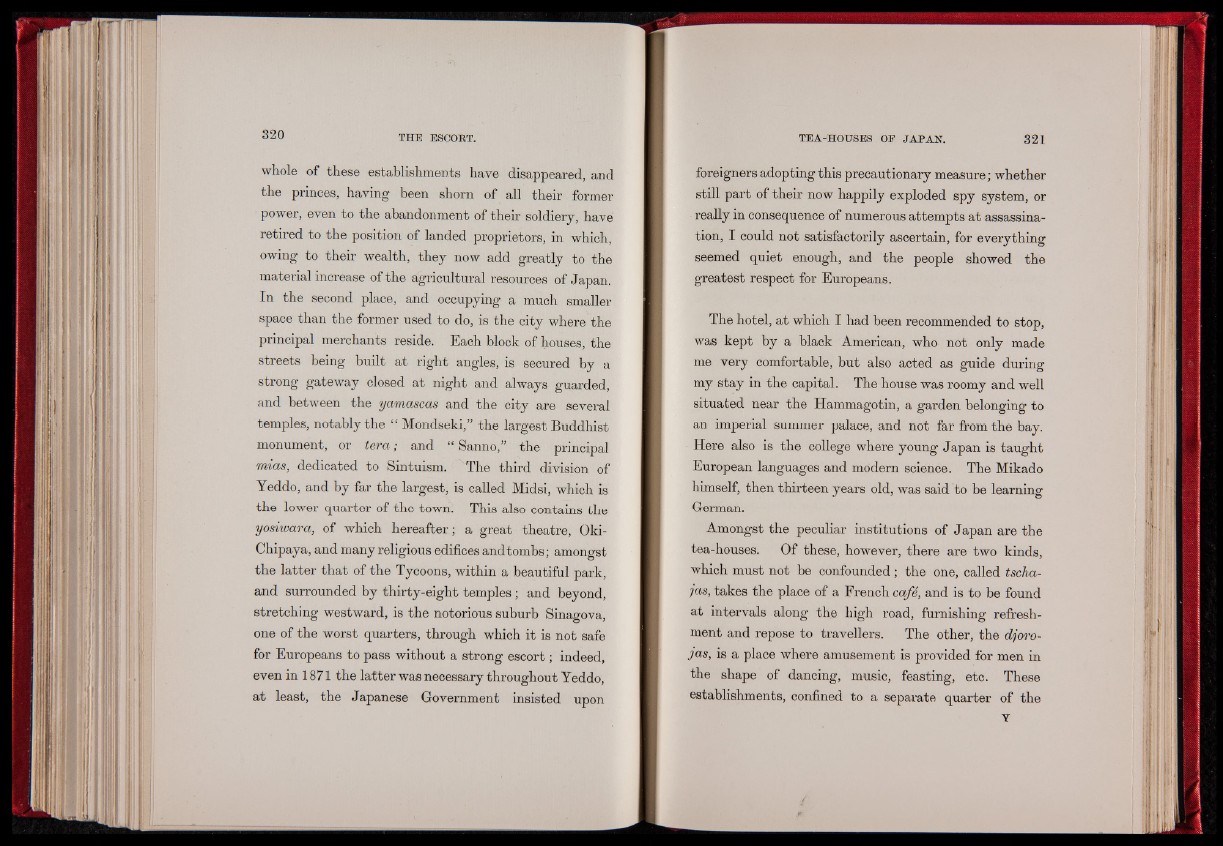
whole of these establishments have disappeared, and
the princes, having been shorn of all their former
power, even to the abandonment of their soldiery, have
retired to the position of landed proprietors, in which,
owing to their wealth, they now add greatly to the
material increase of the agricultural resources of Japan.
In the second place, and occupying a much smaller
space than the former used to do, is the city where the
principal merchants reside. Each block of houses, the
streets being built at right angles, is secured by a
strong gateway closed at night and always guarded,
and between the yamascas and the city are several
temples, notably the “ Mondseki,” the largest Buddhist
monument, or tera; and “ Sanno,” the principal
mias, dedicated to Sintuism. The third division of
Yeddo, and by far the largest, is called Midsi, which is
the lower quarter of the town. This also contains the
yosiwara, of which hereafter ; a great theatre, Oki-
Chipaya, and many religious edifices and tombs; amongst
the latter that of the Tycoons, within a beautiful park,
and surrounded by thirty-eight temples; and beyond,
stretching westward, is the notorious suburb Sinagova,
one of the worst quarters, through which it is not safe
for Europeans to pass without a strong escort; indeed,
even in 1871 the latter was necessary throughout Yeddo,
at least, the Japanese Government insisted upon
foreigners adopting this precautionary measure; whether
still part of their now happily exploded spy system, or
really in consequence of numerous attempts at assassination,
I could not satisfactorily ascertain, for everything
seemed quiet enough, and the people showed the
greatest respect for Europeans.
The hotel, at which I had been recommended to stop,
was kept by a black American, who not only made
me very comfortable, but also acted as guide during
my stay in the capital. The house was roomy and well
situated near the Hammagotin, a garden belonging to
an imperial summer palace, and not far from the bay.
Here also is the college where young Japan is taught
European languages and modern science. The Mikado
himself, then thirteen years old, was said to be learning
German.
Amongst the peculiar institutions of Japan are the
tea-houses. Of these, however, there are two kinds,
which must not be confounded; the one, called tscha-
]as, takes the place of a French café, and is to be found
at intervals along the high road, furnishing refreshment
and repose to travellers. The other, the djoro-
jas, is a place where amusement is provided for men in
the shape of dancing, music, feasting, etc. These
establishments, confined to a separate quarter of the
Y